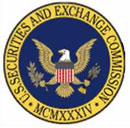Sectarian prayers, including those to Jesus Christ, could return to the front of the Indiana House chamber after a court ruling Tuesday, but opponents warned of a legal challenge if that happens. The ruling by the 7th U.S. Circuit Court of Appeals, a defeat for the American Civil Liberties Union of Indiana, overturned a lower court’s decision that sectarian prayers on the floor of the House violated the constitutional separation of church and state. But Tuesday’s decision didn’t center on whether the prayers should be allowed. It focused more narrowly on whether the plaintiffs, a group of four taxpayers, had the legal standing to sue.
House Minority Leader Brian Bosma, R-Indianapolis, called the ruling a victory for free speech.
“I am honestly elated that the 7th Circuit has protected the rights of individuals to speak openly and freely in every way before the crucible of free speech, the state legislature,” Bosma said.
The lawsuit came after a minister led the House in singing “Just a Little Talk With Jesus.” In November 2005, U.S. District Judge David Hamilton ruled that opening prayers in the Indiana House could not mention Jesus or endorse a particular religion.
Bosma, then House speaker, appealed the decision; current Speaker B. Patrick Bauer, D-South Bend, pressed ahead.
In its 2-1 opinion, the court ruled there were no expenditures directly tied to the prayers. Therefore, as taxpayers, the plaintiffs had no standing to sue.
But that doesn’t mean the legislature should resume its practice of sectarian prayers, said Ken Falk, an attorney for the ACLU of Indiana.
“The one bit of caution is that the 7th Circuit did not approve the prayer practices, and I would hope that the result of this is that the state does not go back to this practice of sectarian prayer,” Falk said. “If that would occur, there could be people who could bring litigation.”
Falk said his organization would not hesitate to file another lawsuit if approached by someone who “regularly attends the sessions and is subjected to the unwanted prayers.”
Under Tuesday’s ruling, he argued, such people would have the standing to sue.
“This doesn’t in any way make the practice any less unconstitutional than it was,” Falk said. “It just indicates that the people who brought this lawsuit, in the estimation of the two judges, were not the proper people.”
Bosma dismissed the threat of another suit.
“I’m sure the Civil Liberties Union won’t rest until all prayer is erased from every aspect of public life,” he said.
Bosma said he wasn’t concerned that the ruling wasn’t based on the case’s merits.
“We’ll take a win any way,” he said. “A hole in one is a hole in one no matter if it hits a tree or you hit it right in the cup.”
Falk said he is recommending his clients ask for Tuesday’s decision to be heard by the 7th Circuit’s full panel of 11 judges. Bosma said he’s confident the ruling would stand.
Carl Tobias, a constitutional law expert at the University of Richmond in Virginia, said he isn’t so sure.
“I think it is really a close case, and I think it will go to the whole court of the 7th Circuit to make the decision,” Tobias said. “A majority of that whole court might yet find that there is standing. So it’s not over yet.”
Judge Diane Wood, who wrote the dissenting opinion Tuesday, argued, “In my view, “the taxpayer-plaintiffs before us have alleged enough to win the right to present their challenges to the House prayer.”
During the 2006 legislative session, lawmakers responded to Hamilton’s ruling by huddling in the back of the chamber for a group prayer before the start of business.
This year, Bauer read prewritten prayers that did not invoke specific religious beliefs; state senators also offered nonsectarian prayers.
Bosma called for a return to sectarian prayers during next year’s session. Bauer said in a statement that he needed more time to review the decision but added he was “delighted that the court has left alone a tradition that has been a part of House proceedings for nearly 190 years.”
He said a prayer would be recited in the House when the legislature convenes for Organization Day on Nov. 20, though his statement left it unclear whether it would be a sectarian prayer.
Yaqub Masih said he hopes all prayers are back for good.
The pastor of a small immigrant church on the Northwestside, he said he felt “humiliated” by the 2005 decision. “It was a matter of freedom of speech and freedom of religion,” Masih said.
Rabbi Arnold Bienstock said prayers in government forums should be neutral, and he fears the resumption of sectarian prayers in the Statehouse will hurt Indiana’s efforts to show its openness to non-Christians.
“It is very hard to encourage people to come to a state that basically seems to be exclusivist,” said Bienstock, whose Northside congregation, Shaarey Tefilla, is about to move to Carmel. “The bottom line is that non-Christians feel uncomfortable, and they don’t feel like they are part of the group.”






